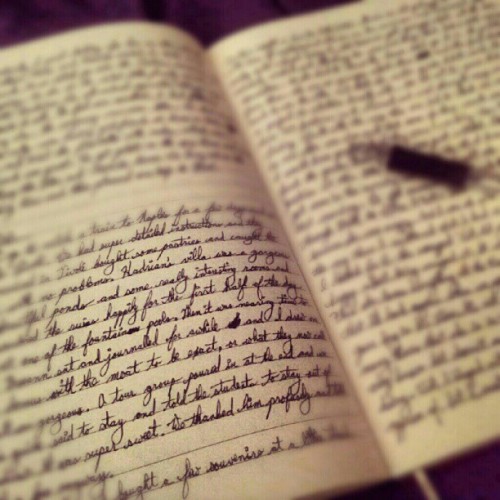 |
| If a picture is worth one thousand words and you aren't using pictures and don't use one thousand words... are you really communicating? Just a thought. |
If you are trying to be scientific then yes, brevity is admirable. You lay out the facts in a logical and clear way that communicates all the important points neatly and concisely. Well done, you can write a brief report and make charts; but I will argue that this is not what real writing is all about. Writing is not about merely communicating facts it is about telling stories and communicating feelings. And stating facts concisely does not make for interesting reading. Every love story ever told can be condensed into this, two people met each other and fell in love. That is not interesting. Yet, we are continually drawn to love stories. Why is that? We are drawn to them because we love to watch the way they unfold. Sure, they all start the same way, with two people who discover that the other person is unlike anyone they've ever met and they can no longer see themselves with anyone else. But what we really want to know are all the details. Why it works for them, how they respond to each other and difficult situations, how they work through the struggles that face every couple. Love brings out the very best and very worst in people and we want to be made to feel for the characters with every delicious word of their story.
Sometimes a sentence just isn't enough to capture the depth of feeling. Sure you can simply state, I'm angry, or I love you, and leave it at that. The Emperor of Brevity will no doubt knight you on the spot. I will argue that this is not enough. Why you feel that way is just as important as the fact that you do. The beauty of language is that it allows you to communicate with great variety and depth everything you feel and think. You have an entire language or two, or three if you're feeling ambitious, to draw words and concepts from to express your thoughts. You have the ability to use all of the rich and subtle variations of thousands of years of vocabulary to put your feelings into words that express them exactly and beautifully. Do not cheat them of this richness by believing that brevity is a virtue.
Scholars may opine that brevity is best. They may look down in haughty disdain on those of us that cannot reduce our words into scientifically precise sentences. Yet, I would challenge them to argue that the statement I love you, can in any way compare favorably to an entire love letter. I would bet they cannot do so convincingly. No, no, words are a delicious thing and I believe they were meant to be devoured in great quantities. Let others strive to be concise. I think I'll keep my words.
If you use one word when you could use six or seven, you're just not trying hard enough.
ReplyDeleteAnd this is why we are friends.
ReplyDelete